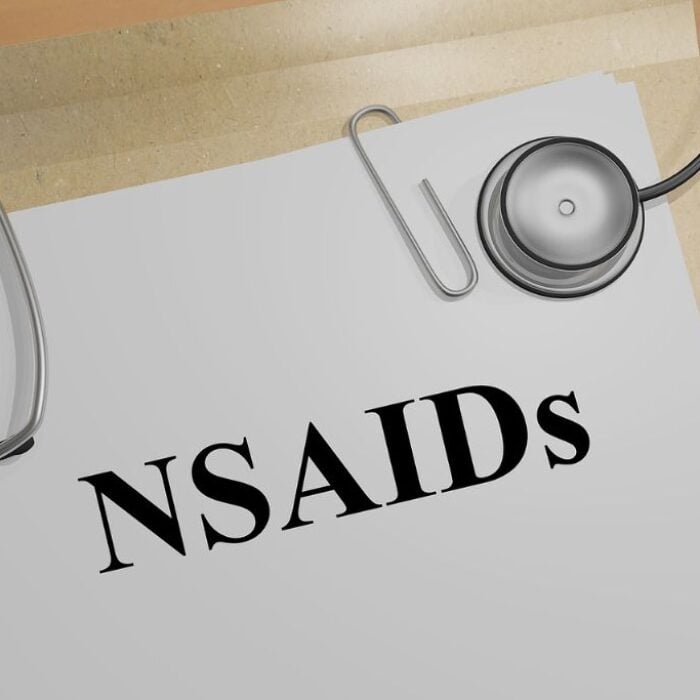Dependence on opioid drugs has been steadily increasing over the past two decades. While this type of medication can provide optimal pain relief for many patients, they do come with a tremendous amount of risks and side effects. One of the most common unwanted side effects are those associated with the gastrointestinal tract, specifically constipation. Several treatment options exist to help manage adverse side effects, but while the individual continues to take daily doses of opioids, constipation remains an issue.
Opioids are a class of drugs that provide optimal pain relief for people with conditions like cancer or fibromyalgia or for people recovering from surgery. However, opioids can be highly addictive and may lead to opioid dependence, one of the most common substance use disorders in the United States.
The risk of dependence isn’t the only potential drawback to opioids, either. This class of medications—which includes codeine, oxycodone, and hydrocodone—also comes with an increased risk of unwanted side effects, including constipation. In fact, constipation affects an estimated 40% to 60% of people taking daily doses of opioids. Constipation also occurs in people taking medications prescribed to treat opioid dependence, such as Suboxone (buprenorphine and naloxone) and methadone.
In this article, we discuss why opioid-induced constipation happens, what the leading opioid constipation remedies are, and how to treat and prevent it.
We can answer your questions about withdrawal and detox today.
What is Opioid-Induced Constipation (OIC)?
Opioids relieve pain by binding to pain receptors in the nervous system. But opioids can also bind to receptors in the digestive system. This inhibits or slows down involuntary muscle contractions in the stomach and intestines (peristalsis), which generally help the gastric contents move along the gastrointestinal tract. When gastric contents move more slowly than they should, more fluid gets absorbed. This makes a person’s stool hard and can lead to constipation. Opioid drugs can also lead to constipation by increasing anal sphincter tone and disrupting the defecation reflex. Furthermore, opioid drugs can impair digestion by disrupting the healthy colonies of bacteria living in the gut and by decreasing the flow of bile, a critical digestive fluid released by the pancreas.
Opioid-induced constipation appears more likely to occur in patients who are older, unemployed, and female, but it can affect anyone taking opioid drugs. Even short-term opioid use may lead to constipation symptoms, which tend to be dose-dependent (i.e., OIC is often worse with higher doses of opioids).
The leading symptoms of OIC include:
- Constipation, or alternating episodes of constipation or diarrhea
- Straining during defecation
- The sensation of incomplete emptying or evacuation of the rectum
- Bloating
- Abdominal pain
- Nausea
- Vomiting
5 Ways to Relieve Constipation Caused by Opioids
Knowing how to treat opioid constipation is essential for relieving symptoms and preventing complications like anal tears, hemorrhoids, rectal prolapse (where the ends of the intestines protrude through the anus), and bowel obstruction, which can be deadly in severe cases. Here are some leading OIC remedies and prevention strategies to be aware of:
1. Use Laxatives and Other Medications to Relieve Constipation
The American Gastroenterological Association (AGA) recommends laxatives as the first line of defense for treating opioid-induced constipation. Laxatives facilitate regular bowel movements by increasing intestinal activity and/or softening the stool. They’re generally considered safe and inexpensive and are often available over the counter (e.g., senna).
When traditional laxative therapy isn’t enough to produce acceptable symptom relief, the AGA recommends other prescription laxative medications, including:
- Intestinal secretagogues
- Selective 5-HT agonists
- Peripherally-acting μ-opioid receptor antagonist (PAMORA) drugs like
2. Discontinue Opioid Drugs
The most effective and direct way to ease opioid-induced constipation is to stop taking opioid drugs. Once opioid drugs are discontinued, and out of a person’s system, constipation usually gets better on its own.
For anyone who no longer needs opioids or wishes to pursue non-opioid pain management, it is possible to become opioid-free with medically-assisted treatment, such as WAISMANN TREATMENT™. With the Waismann Method® opiate detox, the patient undergoes the expected opioid withdrawal phase in a private room within a full-service, JCAHO-accredited hospital under the direct supervision of a quadruple-board certified medical director.
It’s important to know that some of these supportive medications, including methadone and Suboxone, can also cause constipation. Additionally, discontinuing opioids is not always possible. For example, patients with cancer and other terminal conditions might require long-term use of opioids to ensure adequate pain relief and improved quality of life. For these individuals, alternative OIC treatment will be necessary.
3. Increase Dietary Fiber
Fiber is a plant nutrient your body can’t fully digest or absorb. Fiber softens and gives bulk to your stool, making the stool easier to pass. The American Heart Association recommends consuming around 25 to 30 grams of fiber daily. Look for it in foods like fruit, vegetables, and whole grains.
If you struggle to get enough fiber through your diet, you may choose to use a fiber supplement. Most fiber supplements (like Metamucil) come in powder form that can be mixed into a beverage, although you can also find fiber supplements in pill form.
4. Increase Fluid Intake
Increasing fluid intake improves the effect of a high-fiber diet and fiber supplements. Plus, when your body is adequately hydrated, less water gets absorbed from the colon, resulting in softer and easier-to-pass stool.
You might need more or less water depending on factors like your age, lifestyle, and health. The National Academies of Science, Engineering, and Medicine recommends that men drink at least 3 liters (101 fluid ounces or 13 cups) of water per day and that women drink at least 2.2 liters (74 fluid ounces or 9 cups) daily.
5. Exercise
Doctors and researchers are still learning why physical activity may help prevent and relieve constipation. It could be that exercise helps massage the bowels and promote gastric motility. Exercise also improves mood, relieves pain, and improves quality of life. This makes exercise beneficial for people taking opioids even if it doesn’t directly alleviate their OIC symptoms, although some research suggests it does.
Conclusion
OIC is a debilitating condition that can lead to serious or fatal complications if left unaddressed. For some people, coming off opioids is the simplest way to relieve their symptoms. However, this isn’t an appropriate strategy for everyone and should never be done without direct medical supervision.
When going opioid-free isn’t an immediate option, talk to your doctor about other types of opioid-induced constipation treatment, including over-the-counter or prescription laxatives and diet and lifestyle strategies. Always work closely with your physician to minimize your risk of complications and ensure you get the relief you need.
Learn more about the gastrointestinal damage that can arise from opioid-induced constipation.
Learn more about the effectiveness of Waismann Method® rapid detox and post-detox care.
















